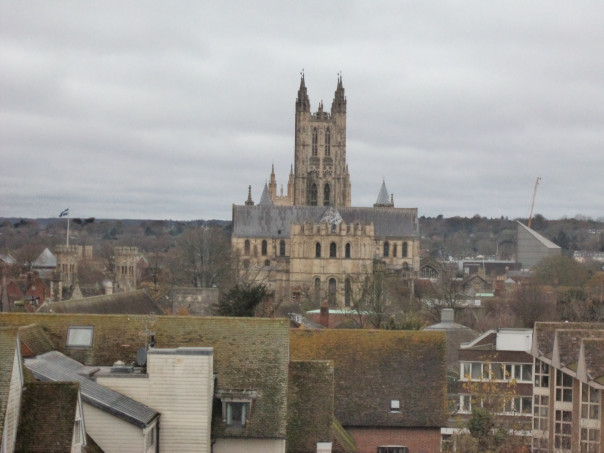As promised for this week I’m going to offer what I think were the CKHH highlights of 2024. This year I’m going to try a thematic approach for at least one of them as a way of featuring as many people and their activities as possible. However, before I get to this, just to say many thanks to Dr Katy Mortimer for taking the lead on the proposal concerning the new 1st year undergraduate medieval and early modern module, provisionally called ‘From Vikings to Voltaire’.
As this project came to a conclusion early in the year, I’ll start off with this as Number 10 and I’m delighted again to feature Dr Diane Heath’s HLF-funded ‘Medieval Animals Heritage’ project that included another ‘Green Dragon’, this time at the Franciscan Gardens: https://blogs.canterbury.ac.uk/kenthistory/different-voices-researching-the-past-in-kent/ and keeping with the dragon theme, Diane in February was at Kent College for the Chinese New Year: https://blogs.canterbury.ac.uk/kenthistory/exploring-material-culture-in-the-past-at-canterbury-and-dover/
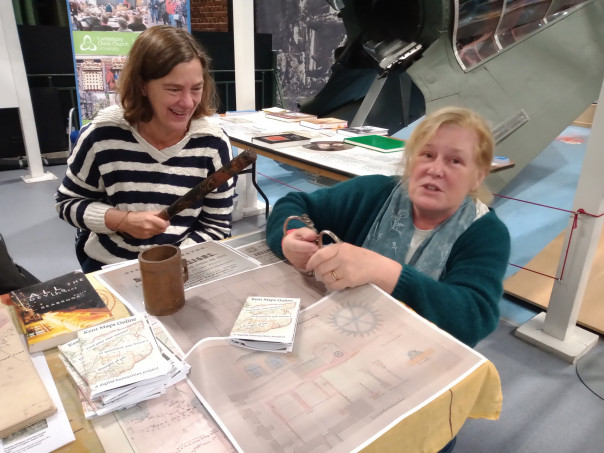
For Number 9, I’m celebrating Aphra Behn, thereby moving to one of Canterbury’s, or perhaps more accurately Harbledown’s literary personages. As part of the collaborative project involving CCCU and the University of Kent, the CKHH represented by Dr Astrid Stilma and Dr Claire Bartram, were leading the first part of the ‘Inspirational Kent Women Writers’ conference that look place early in the year. The conference featured a range of speakers including two Canterbury-based historians, Professor Jackie Eales and Dr David Shaw: https://blogs.canterbury.ac.uk/kenthistory/aphra-behn-and-other-inspirational-kent-women-writers/ . The second part of this exploration of these female writers was led by Dr Catriona Cooper and as befitted a workshop, this took place at The Beaney. In addition to academics and members of the public with interests in different writers, those involved included several postgraduates who had specific interests in how digital resources can be used in engaging wider audiences: https://blogs.canterbury.ac.uk/kenthistory/turning-the-spotlight-on-the-past-investigating-canterbury-and-kent/ .
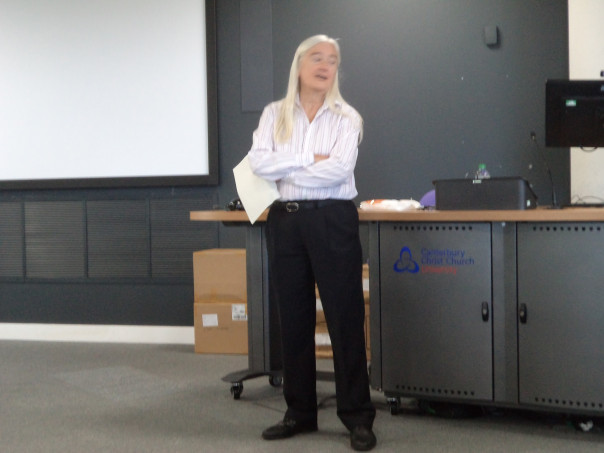
For Number 8, I thought I would remind you of the diversity of the presentations given by members of the Kent History Postgraduates group, both those currently working on their doctorate and those who completed successfully who are now in the world of work. These included Maureen Mcleod’s talk on the involvement of lawyers in the break-up of the Tonbridge deer parks and chases in the 17th century: https://blogs.canterbury.ac.uk/kenthistory/researching-kents-colourful-history-from-mariners-to-lawyers/ Dr Lily Hawker-Yates on her heritage work primarily for MOLA: https://blogs.canterbury.ac.uk/kenthistory/history-and-heritage-in-kent-and-beyond/ Lizzie Burton’s presentation on the history of emotions: https://blogs.canterbury.ac.uk/kenthistory/canterbury-and-kent-from-story-gardens-to-the-history-of-emotions/ and most recently Abi Kingsnorth’s on ballads: https://blogs.canterbury.ac.uk/kenthistory/abi-kingsnorth-and-broadside-ballads/ .
For Number 7, it seems appropriate to flag up several researchers who have successfully defended their PhD theses in 2024. These are Dr Janet Clayton, graduated in the autumn, and Tracey Dessoy and Kaye Sowden, who are currently completing their corrections before graduating, while Victoria Stevens has passed her MA by Research. In addition, the winner of the Lawrence Lyle History MA Dissertation prize was Matthew Collyer. In this case, it is not only important to remember Matthew’s success with his dissertation on different aspects of Anglo-American relations, but equally to commemorate Lawrence and his great contribution to Canterbury’s history through his tireless work on behalf of Canterbury Archaeological Trust, the Canterbury Historical and Archaeological Society and other groups in the city over many decades: https://blogs.canterbury.ac.uk/kenthistory/congratulations-matthew-plus-future-ckhh-events/
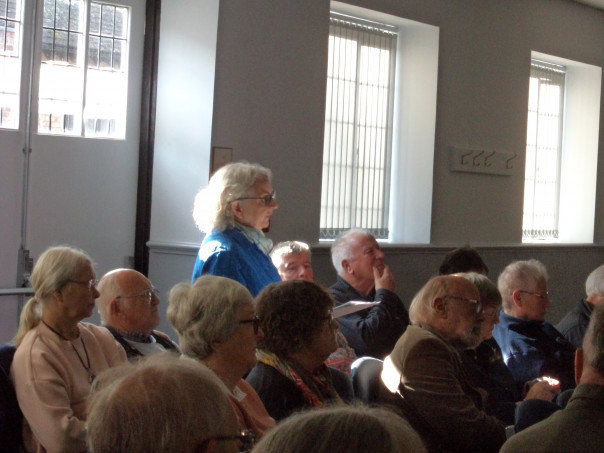
For Number 6, it seemed a good idea to feature the outreach and knowledge exchange talks given by members of the CKHH to illustrate how we have been out-and-about in the county and beyond. One theme that seems to have come through this year is medieval parish life: https://blogs.canterbury.ac.uk/kenthistory/church-going-in-medieval-lenham-plus-looking-forward/ and https://blogs.canterbury.ac.uk/kenthistory/canterbury-exploring-the-citys-history/ . Another theme is hospitals: https://blogs.canterbury.ac.uk/kenthistory/dovers-maison-dieu-the-early-centuries as well as a range of topics and speakers for the Kent Archives for their ‘lunchtime lectures’, including: https://blogs.canterbury.ac.uk/kenthistory/st-albans-court-and-becket-miracle-window/ .
Others, such as Dr John Bulaitis and Dr Catriona Cooper have explored themes including respectively Fascism in Kent between the World Wars and digital history and heritage: https://blogs.canterbury.ac.uk/kenthistory/valuing-maps-in-kent-and-faversham/ and https://blogs.canterbury.ac.uk/kenthistory/from-castles-to-hospitals-researching-kents-past/ . While for those interested in other aspects of the county’s history, please see: https://blogs.canterbury.ac.uk/kenthistory/showcasing-medieval-communities-deal-and-faversham/
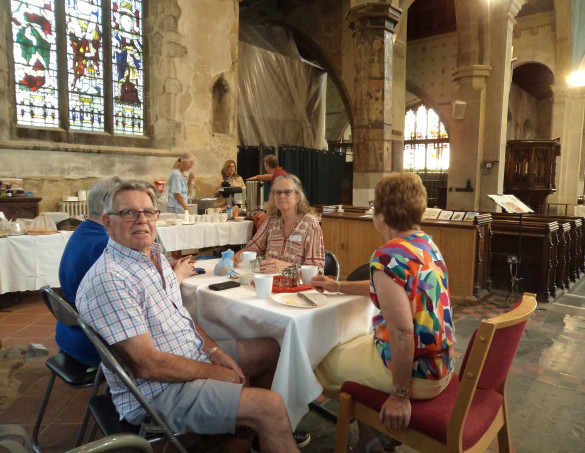
For Number 5, I want to highlight the continuing success of the funded Kent’s Maritime Communities project, which is another collaborative undertaking this time with the University of Southampton. This year we held a joint conference at the Community Cinema in Dover Museum with the three speakers from CKHH being Kieron Hoyle, Jason Mazzocchi and me. In addition to the presentations to an almost full house who were a very appreciative and enthusiastic audience, both Southampton and CKHH at CCCU had produced educational pop-up banners on show, the latter focusing on different aspects of medieval Dover’s maritime history: https://blogs.canterbury.ac.uk/kenthistory/kents-maritime-communities/ and the book from the project should be going to the publisher very shortly.
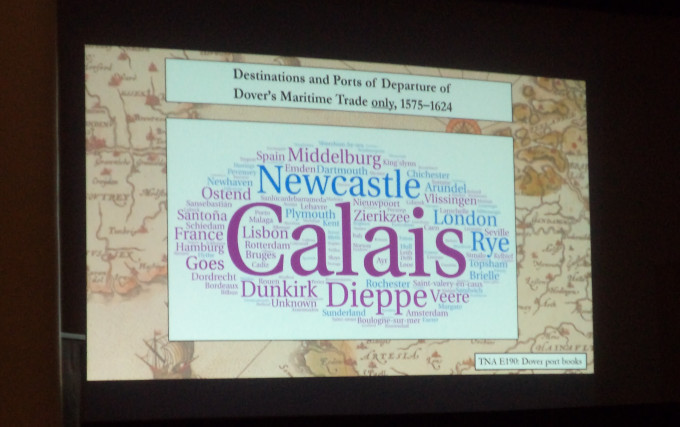
For Number 4, I think it is highly appropriate to feature the CKHH annual lectures, starting with the Becket Lecture which in May 2024 was given by Professor Elisabeth van Houts on the Empress Matilda. The appreciative audience were joined by CCCU’s Vice-Chancellor and the Lord Mayor of Canterbury: https://blogs.canterbury.ac.uk/kenthistory/becket-lecture-plus-cinque-ports/ . Equally successful in September was the Nightingale Lecture, a joint event with Brook Rural Museum that this year featured the return of Dr John Bulaitis, the lecture combined with a book launch for John’s newly published book on The Tithe War, so for this enjoyable occasion: https://blogs.canterbury.ac.uk/kenthistory/the-tithe-war-kent-and-england/ . Moreover, the Ian Coulson Memorial Postgraduate Awards were again presented at the Nightingale Lecture. These awards continue to aid postgraduates at CCCU studying Kent history topics and for this, please see the blog link immediately above.
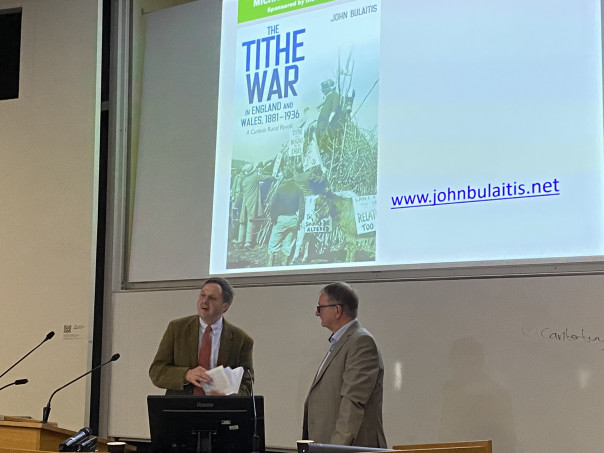
For Number 3, the CKHH reached a major milestone in the form of the 500th blog which featured reports from several of our activities not only in Kent but Yorkshire and Somerset as well. This is again testimony to the strength of the Centre: https://blogs.canterbury.ac.uk/kenthistory/500th-blog-from-yorkshire-to-somerset/ .
For Number 2, we have worked with other organisations both inside and outside universities such as Kaye Sowden, Jason Mazzocchi and Kieron Hoyle, who organised a session at the University of Kent’s MEMS Fest where they were complimented on their presentations: https://blogs.canterbury.ac.uk/kenthistory/kent-history-postgraduates-at-mems-fest/ and Peter and Jane Joyce who organised the Medway History Showcase: https://blogs.canterbury.ac.uk/kenthistory/mhs-24-and-kas-historic-buildings-the-ckhh-out-and-about-in-kent/ .
An establishment that benefitted from the Centre’s expertise was the Maidstone Museum concerning the most suitable medieval objects for its new exhibition gallery. The opening of the new gallery was celebrated in June: https://blogs.canterbury.ac.uk/kenthistory/celebrating-with-maidstone-museum-and-other-forthcoming-events/ and https://blogs.canterbury.ac.uk/kenthistory/from-the-stone-age-to-the-tudors-exploring-kents-past/ . Other groups the Centre partnered or worked with are the Lossenham project wills group, Dover’s Maison Dieu and Dover Museum, the Association for Manuscripts and Archives in Research Collections, the Medieval Pageant, KAS’s Kent Maritime Group, Eastbridge Hospital and the Society of Landscape Studies to name but a few: https://blogs.canterbury.ac.uk/kenthistory/voices-from-the-archive-medieval-and-tudor-manuscripts/ and https://blogs.canterbury.ac.uk/kenthistory/tenterden-museum-and-canterbury-conference/ and https://blogs.canterbury.ac.uk/kenthistory/canterbury-commemoration-a-fire-thomas-more-and-thomas-becket/ and https://blogs.canterbury.ac.uk/kenthistory/shipbuilding-at-chatham-with-canterbury-expo/ and https://blogs.canterbury.ac.uk/kenthistory/exploring-kent-landscapes-from-cliffs-to-castles/ .
Furthermore, the CKHH’s wide reaching engagement with Canterbury communities and those more widely across Kent over the last decade was celebrated in June by a joyous occasion that highlighted what has been achieved as well as looking to the future: https://blogs.canterbury.ac.uk/kenthistory/ckhh-celebrating-10-years-past-present-and-future/ .
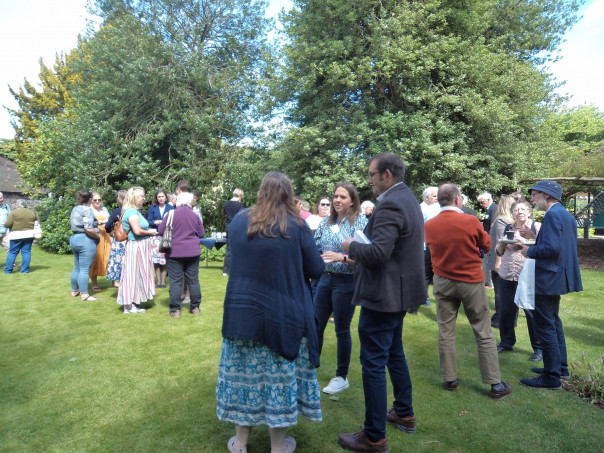
For Number 1, I would like to put forward the Medieval Canterbury Weekend which was another very successful History Weekend having appreciative and enthusiastic audiences, a lively atmosphere throughout, a wonderful bookshop provided by Craig Dadds, the bookshop manager, good catering facilities, and great speakers who enjoyed giving presentations and talking to people inside and outside the lecture rooms. The students – postgraduate and undergraduates were excellent as part of the Welcome Team and several members of staff – lecturers and others, gave up their time to chair sessions or help with the tours. Hopefully this will give you a flavour of the Weekend and there are reports on previous years on the CKHH website, but for 2024, please see: https://blogs.canterbury.ac.uk/kenthistory/medieval-canterbury-weekend-2024/ .
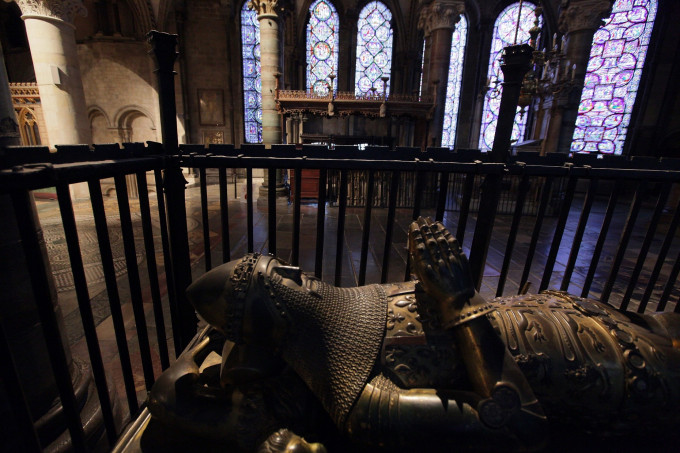
Hopefully, like us, you have enjoyed the many activities and events we at the Centre have been involved in during 2024 and we hope you will continue to join us in 2025, including our next History Weekend which is Tudors and Stuarts 2025: https://ckhh.org.uk/tudors-stuarts and this, as well as other future events will feature in the first blog of 2025.
 Centre for Kent History and Heritage
Centre for Kent History and Heritage Sheila Sweetinburgh
Sheila Sweetinburgh 1847
1847